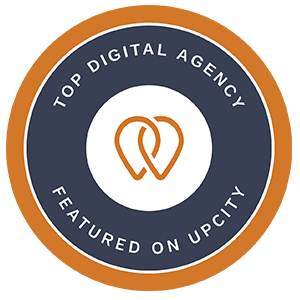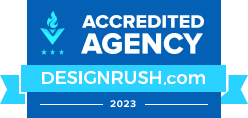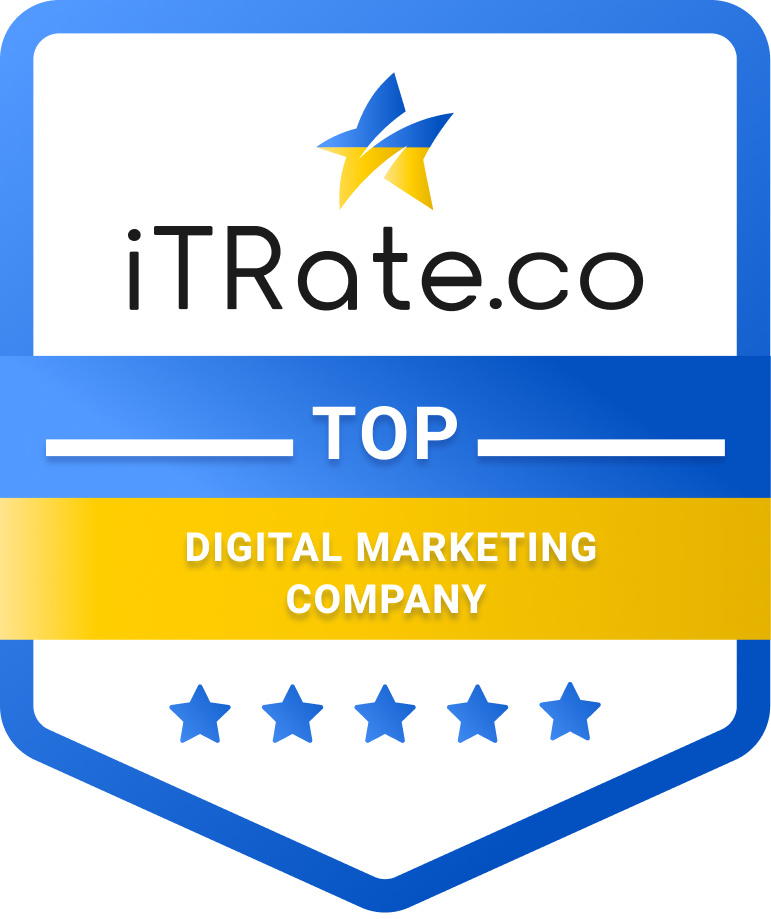Request for more details
In the ever-evolving digital landscape, real estate professionals are increasingly turning to blogging as a powerful tool for driving traffic and generating real estate leads. Blogging offers tremendous value for realtors looking to boost their business and stand out in a competitive real estate market. By regularly publishing high-quality, useful content optimized with relevant keywords and incorporating digital marketing strategies for real estate, therefore realtors can build brand awareness, increase web visibility, generate more leads, and nurture relationships with potential clients.
Real estate blogging is more than just sharing your thoughts; it's a strategic approach to connect with potential clients. This guide aims to provide a comprehensive overview of best practices and proven tips to help realtors maximize the impact of blogging for their brands and implement a successful real estate local SEO strategy. Continue reading for detailed recommendations in each area.
Getting Started with Real Estate Blogging
Making blogging a consistent part of your marketing strategy offers compelling benefits for real estate agents looking to grow their business. Studies show that companies with regular blog content enjoy 55% more website visitors and 434% more indexed pages compared to those without blogs. This major increase in traffic and search visibility demonstrates the power of blogging for improving rankings and driving more visitors to sites, especially when coupled with a robust real estate SEO keywords approach.
Before diving in, it's important to understand the key reasons why blogging represents a smart investment of resources for realtors.
Why Blog as a Realtor?
Blogging provides significant benefits for real estate agents looking to expand their business and stand out from the competition. Before diving in, let's explore the key reasons why blogging represents a smart investment of resources for realtors.
Build your brand and expertise
Blogging is a powerful tool for establishing yourself as an authoritative industry voice online. By regularly publishing high-quality content, you can showcase your market knowledge, skills, and unique value proposition.
- Humanizes your brand and establishes trust by sharing insights
- Positions you as an expert resource on relevant topics like local real estate, mortgages, home renovations, etc.
Increase web visibility and traffic
Optimized, valuable content will improve your search engine rankings and bring new visitors to your site over time.
- Fresh, optimized content boosts search engine rankings
- Drives more organic traffic from search engines
- Increases domain authority and credibility over time
Generate leads and sales
Quality content attracts your ideal prospects and nurtures them into becoming clients.
- Useful, educational content attracts and nurtures leads
- Calls-to-action can convert readers into contacts
- Lead nurturing through email lists and newsletters
- Build relationships and stay top-of-mind with potential clients
- Establish authority and credibility which translates into sales
Choosing a Blog Platform
One of the first steps in starting a blog is selecting the right platform. The platform you choose impacts functionality, flexibility, ease of use, and maintenance requirements.
Hosted Blogging Platforms
Hosted platforms require no technical expertise to set up and manage. The service handles hosting, maintenance, and updates for you. However, customization and control are limited. Popular hosted options like WordPress.com, Blogger, and Medium do not allow plugins or custom code.
Self-Hosted Blogging Software
Self-hosted platforms like WordPress.org offer more flexibility and control. You install the software on your own web hosting service, enabling full customization. However, you need some technical expertise and must handle updates and maintenance. For realtors investing in content marketing, the flexibility of self-hosted WordPress typically makes it the best choice. However, simpler hosted platforms can also be effective if technical aspects are less ideal.
Popular Blogging Platforms for Realtors
Here are some of the top blogging platform options for real estate professionals:
- WordPress.org - Powerful open-source software, fully customizable with plugins and themes. Top choice for real estate.
- WordPress.com - Hosted on WordPress itself. Easier to start but has less flexibility.
- Blogger - Simple hosted blog from Google. Very limited features.
- Medium - Focused on building an audience, less control.
- Wix - Website builder with integrated blogging. More DIY focused.
Setup and Optimization
To create an effective real estate blog that attracts and converts readers, you need to optimize both on-site and off-site factors impacting user experience, search visibility, and credibility.
On-Site Optimization
Choices made in setting up and configuring your blog impact how quickly and easily people can access your content.
- Secure a targeted domain name and reliable web hosting with a content delivery network.
- Install essential WordPress plugins like Yoast SEO, Google Analytics, and caching.
- Optimize site speed and performance through code, images, and hosting.
- Enable SSL encryption for security.
Off-Site Optimization
You also need to optimize how search engines and other sites view and index your blog content:
- Link building and local citations to increase domain authority
- Create and verify profiles on Google My Business, Facebook, LinkedIn, etc.
- Integrate IDX for real estate listings
- Submit XML sitemaps and robots.txt to search engines
- Request indexing of new pages and posts
Developing a Blogging Strategy
Creating great content is crucial, but you also need a strategic, focused approach to establish an effective long-term blogging presence. Consistency and planning are key elements for real estate professionals.
Consistency is the Key
- Establish a regular publishing cadence, such as 2x per week.
- Maintain consistency, don't let your blog go inactive for long periods.
- Balance longer posts with quick tips and market updates.
- Use an editorial calendar to organize and schedule upcoming content.
Topic Ideas and Themes
Great real estate blog content balances educational and entertaining themes:
- Local market statistics and analysis
- Spotlights on specific neighborhoods, cities, new developments
- Home buying/selling tips and advice
- Agent/agency updates and news
- Lifestyle recommendations for the local area
- Interviews, Q&As, guest contributions
Calls-to-Action
Clear calls-to-action convert engaged readers into contacts and clients:
- Subscribe forms for email newsletters
- Promote current listings, open houses, showings
- Free downloadable resources like market reports
- Request consultations, meetings, and additional information
Creating Valuable Content
The cornerstone of a successful real estate blog is consistently creating and publishing high-quality, useful content tailored to your audience. Optimize both the content itself and your promotion strategies. By focusing on creating content people want and making that content discoverable, you can build authority, traffic, and leads over time.
Types of Blog Content for Realtors
Aim to include a healthy mix of post topics and formats that provide ongoing value to your readers. Balance educational pieces with more entertaining lifestyle content as well.
1. Market Updates and Analysis
Sharing the latest housing market statistics, trends, and news relevant to your area establishes your expertise. Offer insights and analysis based on current data and projections. Posts on pricing, inventory, turnover and more demonstrate your understanding of local market dynamics.
2. Local Area Guides
In-depth neighborhood, suburb, and city spotlights make great content. Highlight amenities, lifestyle, popular locations, school information, pricing, and statistics. Include photos, virtual tours, maps, and historical background. This helps home buyers learn about options.
3. Home Buying/Selling Tips
How-to articles with actionable advice help both buyers and sellers. Provide guidance on finding the right agent, negotiations, staging, listings and more. Cover mortgage processes, affordability, budgets, moving and other key topics. Share your best tips.
4. Lifestyle and Community
Softer lifestyle content balances your more educational real estate posts. Recommend local events, attractions, and activities. Profile businesses, groups, and organizations. Share thoughts on family, culture, and arts in your community. This content is more evergreen and engaging.
5. Agent and Agency Updates
Mix in news and announcements from your real estate agency as well. Share agent bios, achievements, awards, and volunteer work. Promote new listings, open houses, and events. Give followers a behind-the-scenes look at your agency.
Latest SEO Tools We Use














Optimizing Blog Posts for SEO
Proper on-page optimization elements like keyword optimization and effective title tags are key to enhancing your content's visibility and ranking in organic search.
-
Keyword Research
Thorough keyword research identifies terms and questions home buyers/sellers search for around topics you're covering. Prioritize 1-2 primary keywords to strategically target in each post.
-
Meta Descriptions
Craft compelling meta descriptions that accurately summarize the post and include the main keyword(s). Entice readers to click through from search.
-
Image Optimization
Relevant, high-quality images and graphics improve engagement. Use descriptive file names and ALT text with target keywords. Optimize image file sizes for faster loading.
-
Title and Header Tags
Incorporate your primary keyword(s) naturally in the title tag and H1/H2 header tags. This aligns with best practices for SEO while keeping the user experience in mind, an essential aspect of successful SEO for real estate company, brokers, agents and agencies.
Promoting and Distributing Content
Creating great content is only half the battle - smart promotion strategies are crucial to actually get each post in front of the right target audiences. Distributing your real estate content across multiple channels will maximize impact and exposure. Leverage these strategies:
-
Email Lists and Newsletters
Send new posts and highlights to your email subscriber list. Include brief excerpts and compelling calls to action to increase engagement.
-
Social Media
Share blog post links, images, and clips on all your social media profiles. Encourage readers to like, share, and comment to boost reach.
-
Paid Ads
Promote new posts through PPC Advertising like Facebook Advertising, Instagram Advertising, and Google Ads. Target locally by location, interests, and remarketing.
-
Syndication
Republish posts on aggregator sites and pitch to local news outlets. Guest posting partnerships also expand reach.
In today's digital world, producing useful content alone is not enough - you need an integrated strategy for optimizing and promoting that content effectively. By focusing on creating value for readers and making that content discoverable, real estate professionals can build authority, traffic, leads, and sales through their blogs over time. The keys are consistency, optimization for search, and leveraging multiple distribution channels. With the right approach to creating and promoting content, your real estate blog can become a valuable asset and consistent lead generation driver.

Free SEO Analysis
Tracking Performance and Results
Consistently analyzing your blog’s performance across key metrics is crucial for informing optimization efforts and maximizing results over time. Approach tracking with specific goals in mind, focus on the metrics most relevant to those goals, and actively apply insights from the data to improve your strategy.
Setting Goals for Your Blog
Well-defined goals provide a strategy for your blogging efforts and concrete benchmarks to track progress over time. Consider outlining specific targets related to:
- Traffic - Set specific targets for monthly or annual visitors, sessions, and pageviews
- Lead generation - Define the number of emails or contact form opt-ins wanted
- Engagement - Target metrics like time on site, repeat visitor rate, social shares
- Backlinks - Set goals for new referring domains
- Conversions - Track email signups, downloads, inquiries, sales
Key Metrics to Track
Focus tracking on the metrics most aligned with your stated goals to gain actionable insights into content and strategy performance.
-
Traffic Volume and Sources
Monitor key volume metrics like visitors, sessions, pageviews, and pages per session. Analyze which channels - search, social, direct - are driving visits. Track landing and exit pages to understand visitor experience. -
Engagement and Time on Site
Metrics like bounce rate, time on site, and scroll depth indicate how engaging your content is. Watch clicks, repeat visitor rate, goal completions. Low engagement means the opportunity to optimize content. -
Lead Capture and Conversions
Closely track email list sign-ups, downloads, and inquiries generated from posts. Assign values to conversions like emails and monitor progress to goals. Build visitor profiles based on these actions.
Analytics Platforms
Leverage built-in and third-party analytics platforms to access comprehensive performance data.
-
Google Analytics
The most powerful free option. Provides detailed statistics and customization. Integrate with your blog and Google account. -
Built-In Blog Analytics
Most blogging platforms offer basic analytics covering key metrics. Useful to supplement Google Analytics.
Review metrics weekly or monthly to identify optimization opportunities. Analyze new posts specifically to refine strategy.
Optimizing Based on Data
The key to maximizing your real estate blog's performance over time is continually refining your approach based on data and insights into what content and strategies are working best. Tracking key metrics allows you to double down on high-potential areas and improve or eliminate what underperforms.
- Expand on topics and keywords driving traffic
- Improve weak pages based on engagement metrics
- Increase partnerships and referral sources showing potential
- Test calls-to-action, layouts, promotion tactics
- Shift promotion strategies based on traffic patterns
Sustaining Your Realtor Blog Over Time
Launching a real estate blog is just the first step - the greater challenge is creating valuable content consistently over months and years. Sustaining a successful blog requires planning, repurposing, and focusing on steady growth.
Consistency is Key
Establish a consistent publishing cadence, such as 2x per week, and stick to it. Readers expect frequent updates from blogs. Avoid gaps without new content.
Planning an Editorial Calendar
Use an editorial calendar to map out posts in advance. Schedule topics and themes weeks or months ahead. Assign publishing dates and make assignments. This sustains consistency.
Leveraging Guest Posts
Invite industry partners, local experts and clients to contribute occasional guest posts. Provides useful variety and promotes partnerships while giving you built-in content.
Repurposing Content
Repurpose existing blog posts into new formats - turn posts into videos, podcasts, and infographics. Create expanded versions, spin-off posts, or update older evergreen content.
Building Traffic Over Time
Don't expect overnight results. Focus on slow and steady audience growth through search optimization, social promotion, email nurturing and high-quality content. Traffic and leads build cumulatively. Consistency and planning enable realtors to maintain vibrant blogs that attract and engage readers month after month, year after year. The payoff is substantial for those committed long-term.
Final Thoughts
Commitment to a high-quality blog provides realtors with an invaluable tool for brand building, lead generation, and showcasing expertise over the long run. Blogging has become a must-have component of an integrated digital marketing services in today's competitive market.
While an effective blogging strategy requires consistency and effort, the payoff in terms of business growth and results is well worth the investment. The time to start building your realtor blog is now. Begin brainstorming topics, and research platforms, and take the first steps outlined in this guide. Your future clients are searching for resources - make sure your blog appears in search results as a trusted destination.














